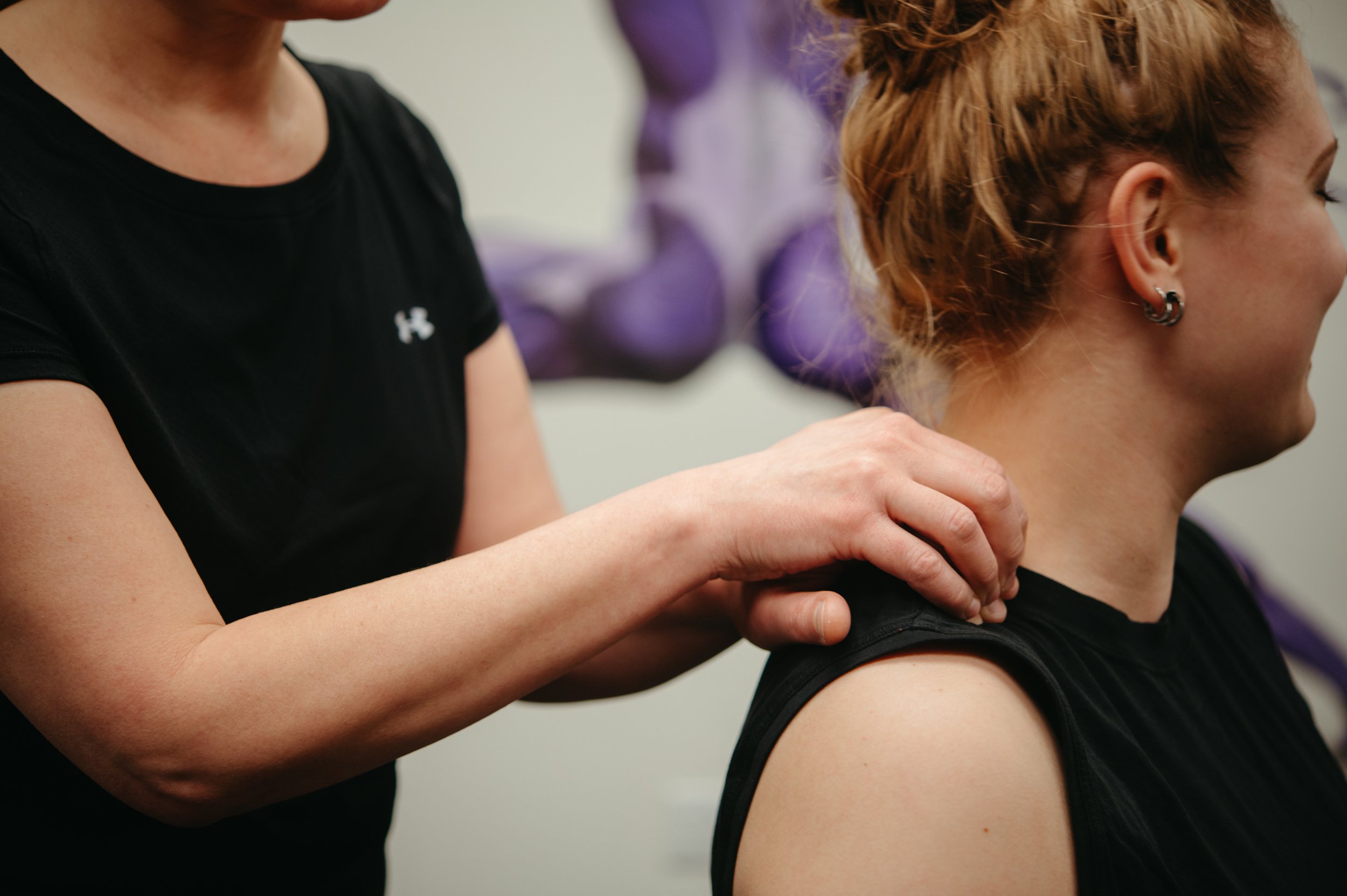
Massage and Kinesiology for
ROTATOR CUFF INJURIES
Rotator Cuff Massage Therapy Edmonton
Rotator cuff injuries is a very broad term for shoulder injury. You have 4 main rotators of your shoulder (cuff) they are supraspinatus, which is mainly responsible for abduction of shoulder, infraspinatus which is mainly responsible for external rotation of shoulder, subscapularis which is mainly responsible for medial rotation, and teres minor which is mainly responsible for external rotation. There are more muscles that attach to the shoulder that also move the shoulder and are easily confused with rotator cuff injuries, however, they are mainly treated the same with massage therapy, they would be treated different if it was physical therapy.
Rotator cuff injuries can present differently but most common is pain in the front of the shoulder during movement. The pain may increase with movement of the shoulder or putting load on it for weightlifting, putting a T-shirt on, opening a door, carrying a baby, etc…
The mechanism (how it happened) also varies significantly, it can be an overuse injury, certain rotators being weak, and others over developed creating an imbalance in the cuff, sudden injury, etc…
What can Kinesiology do?
At MRMT we practice a Kinesiopathic model to treat low back pain. We will find the route cause of why these injuries may have happened, we will determine the phase of healing you are in (how acute the injury is), assess your biomechanics (if you hurt your back during an olympic lift, back squat, bench press etc… we will do a biomechanics analysis of these lifts to make sure the correct muscles are being used.) We then find your strength and mobility imbalances in the joints above and below to get a complete look at how your system is functioning. There is no exact protocol because each injury is different. The treatment will be tailored to what we find in you.
How can massage help?
Massage can have a significant impact alone, but the fastest longer lasting recoveries are with massage and physio combined. Massage will decrease adhesions, so they are no longer pulling at their attachments (most likely in the front of the shoulder). Relieving pain almost instantly. This injury will most likely need reoccurring appointments depending on the severity of the injury. Often if the injury is more severe several appointments will be required to get deep enough into the injury. All of our therapists are highly trained to locate adhesions to decrease the muscle pulling on the tendon.
Rotator Cuff Massage FAQs
How to book rotator cuff treatment?
You can book in as a regular therapeutic massage treatment and tell us about your symptoms and we can use the modalities that will best help you.
Does rotator cuff massage cost more?
No, rotator cuff massage therapy is included in our standard massage prices
Do you offer direct billing?
Yes, we will direct bill for MVA cases.
What we need
Adjusters email and phone number
Claim number
An email to send invoices too
A credit card on file that will not be charged unless you go over your 21 treatments and insurance will not cover your massage. It is your responsibility to not go over 21 combined treatments.

